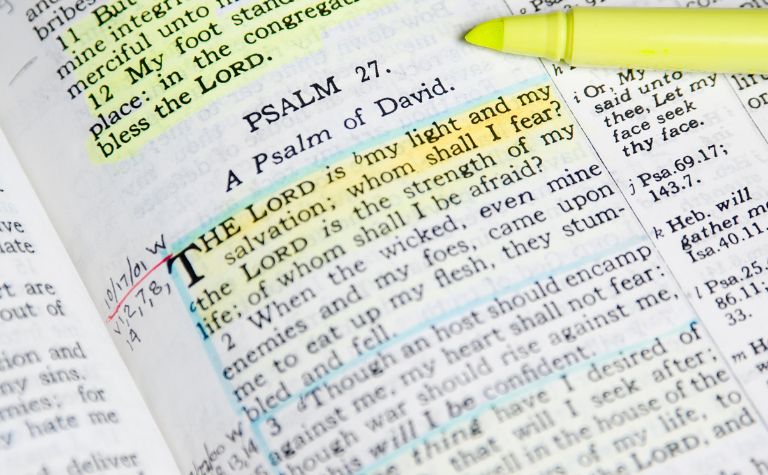One of the most important theological differences between the Roman Catholic Church and Protestant Christianity is the doctrine of purgatory. Catholicism teaches that purgatory is a temporary middle state between heaven and hell where disobedient Christians are purified. An important question Catholics and Protestants ask is where the Bible teaches about purgatory.
According to the Roman Catholic Church, the Bible contains two verses supporting the doctrine of purgatory, 1 Corinthians 3:15 and Matthew 12:32. Protestants disagree with their interpretations. The heart of the doctrine is found in the Apocrypha, specifically in 2 Maccabees 12:38-45.
What does Paul say about fire in 1 Corinthians 3:15? Where does the Catholic church find purgatory in this verse? How does Jesus’ teaching on blasphemy of the Holy Spirit and the unforgivable sin in Matthew 12:32 teach purgatory? How does 2 Maccabees’ description of praying for the dead relate to the doctrine? Keep reading to learn the answers to these questions and others.
Also, see Did Jesus Descend Into Hell? to learn more.

Did Paul teach about purgatory?
In 1 Corinthians 3:10-15, Paul encourages Christians to serve God and do work that lasts in order to receive a holy reward. The passage builds on his statement in verse eight, where he writes that every Christian “will receive his wages according to his labor” (ESV). Another translation says believers will be “rewarded for their own hard work” (NLT).
Readers should note that Paul changes metaphors quickly in this chapter. In 1 Corinthians 3:5-8, he uses the imagery of planting and watering. In verses 10-15, he uses the imagery of constructing a building. He mentions both in verse nine: “For we are God’s fellow workers. You are God’s field, God’s building.”
Building with materials that survive the fire of judgment
In the passage, Paul contrasts building with perishable materials, which won’t survive God’s judgment, and imperishable ones that will last forever.
On one hand, he says if anyone devotes themselves to building in ungodly ways, God will destroy their work on Judgement Day (v. 13). On the other hand, he says that “if the work that anyone has built on the foundation survives, he will receive a reward” (v. 14, ESV).
Paul clearly defines the foundation in verse 11: “For no one can lay a foundation other than that which is laid, which is Jesus Christ.” Many 1 Corinthians scholars believe Paul is referring to the gospel of Jesus Christ itself (cf. 1:18-2:16). [1]
Christians will be saved through fire
The Roman Catholic Church teaches that 1 Corinthians 3:15 refers to the doctrine of purgatory. According to the verse, believers who devote themselves to Christ-less construction in life will have their works destroyed and only narrowly escape judgment. “If anyone’s work is burned up, he will suffer loss, though he himself will be saved, but only as through fire” (ESV).
Protestants argue that Paul isn’t referring to a temporary state of purification between heaven and hell. The fire imagery in the passage is a metaphor for God’s judgment that burns off the impurities of old values, commitments, and work, leaving only what’s of true and eternal worth. In summary, the builder survives, but if constructed without Christ, the building doesn’t.
New Testament scholar David Garland explains, “The laborer who used cheap materials and took shortcuts will be pulled out of the flames and the rubble heap in the nick of time, like a brand snatched from the fire (Amos 4:11; Zech. 3:2). But inept builders are not just pulled from the ashes; ‘being saved’ points to their eternal salvation (1:18, 21; 5:5; 7:16; 9:22; 10:33; 15:2).” [2]
1 Corinthians expert Gordon Fee says that to see purgatory in this verse “is to miss Paul by a wide margin. This is metaphor, pure and simple, probably reflecting something like Amos’s ‘firebrand plucked from the burning’ (4:11). The implication is that the person persisting in his present course of ‘wordly wisdom’ is in grave danger and that he will be pulled out of his rubble heap just in the nick of time.” [3]
Also, see What Does Halloween Mean in the Bible? to learn more.

Did Jesus teach about purgatory?
Matthew 12:22-32 is about blasphemy against the Holy Spirit and what’s commonly called the unforgivable sin. In context, Jesus is responding to the Pharisee’s accusation that his miraculous work was Satanic: “But when the Pharisees heard it, they said, ‘It is only by Beelzebul, the prince of demons, that this man casts out demons'” (v. 24).
Jesus responds, saying that calling his work Satanic is blaspheming the Holy Spirit and won’t be forgiven (v. 31). He adds, “And whoever speaks a word against the Son of Man will be forgiven, but whoever speaks against the Holy Spirit will not be forgiven, either in this age or in the age to come” (ESV).
The Roman Catholic Church teaches the end of verse 32 implies the existence of purgatory. Jesus said God wouldn’t forgive blasphemy of the Holy Spirit in this age or the next one, which refers to existence after this life.
Catholic teaching asks the question, why would Jesus mention the idea of forgiveness occurring “in the age to come” if certain sins weren’t forgiven until then?
Commonly, Protestants respond, saying Jesus isn’t teaching about forgiveness occurring after death. Instead, he’s emphasizing the horrifying nature and consequences of blaspheming the Holy Spirit. To articulate a doctrine based on an arguable implication lacks foundation in Protestant thinking.
Also, see What Does 222 in the Bible? to learn more.

What does 2 Maccabees 12:41-46 say about purgatory?
Protestants don’t believe God inspired 2 Maccabees. The Catholic Church does, which is why they find the prayers for the dead in 2 Maccabees 12:41-16 informative. Protestants argue that such passages contradict the Bible. For example, Hebrews 9:27 reads, “And just as it is appointed for man to die once, and after that comes judgment” (ESV).
Verse 41: “Then they all blessed the just judgment of the Lord, who had discovered the things that were hidden.”
Verse 42 mentions praying for dead soldiers. Verse 42: “And so betaking themselves to prayers, they besought him, that the sin which had been committed might be forgotten. But the most valiant Judas exhorted the people to keep themselves from sin, forasmuch as they saw before their eyes what had happened, because of the sins of those that were slain.”
Verse 43 mentions making a sacrifice for the dead: “And making a gathering, he sent twelve thousand drachms of silver to Jerusalem for sacrifice to be offered for the sins of the dead, thinking well and religiously concerning the resurrection.”
Verse 44 expresses optimism that God would answer their prayers: “(For if he had not hoped that they that were slain should rise again, it would have seemed superfluous and vain to pray for the dead).”
Verse 45 reads: “And because he considered that they who had fallen asleep with godliness, had great grace laid up for them.”
Verse 46 mentions praying for the dead for the atonement of their sins: “It is therefore a holy and wholesome thought to pray for the dead, that they may be loosed from sins.”
Also, see What Dog Breed Is Mentioned in the Bible? to learn more.
References:
[1] The First Letter to the Corinthians by Gordon D. Fee. NICNT. p. 139.
[2] 1 Corinthians by David Garland. BECNT. p. 119.
[3] Fee. p. 144.
Related Questions
Adam and Eve are the first humans God created. Readers know the pair as the first man and woman, and as the first people to rebel against God, which they did in the Garden of Eden. Did Adam and Eve...
Judas Iscariot is one of the most infamous figures in the Bible. He is best known for betraying Jesus Christ with a kiss for 30 pieces of silver. Judas committed suicide not long after his...
